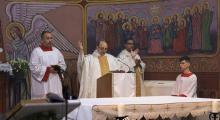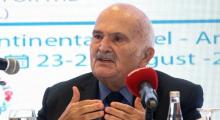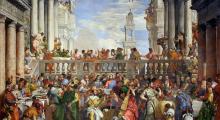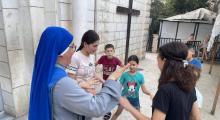Issued by the Catholic Center for Studies and Media - Jordan. Editor-in-chief Fr. Rif'at Bader - موقع أبونا abouna.org
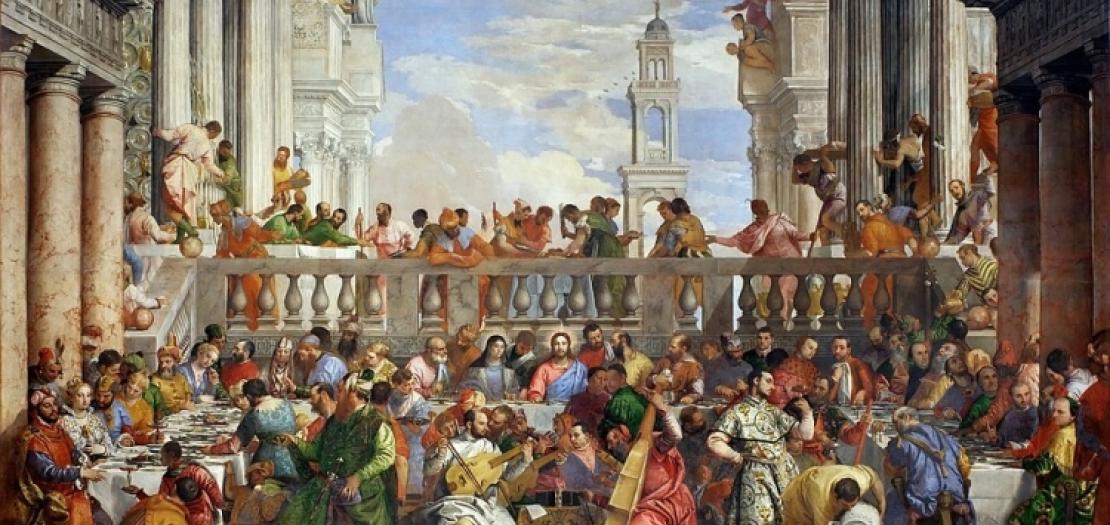
Following is the text of the meditation by His Beatitude Cardinal Pierbattiasta Pizzaballa, Latin Patriarch of Jerusalem, on the 31st Sunday of Ordinary time, dated August 31, 2025:
The invitation to lunch at the house of one of the Pharisee leaders provides Jesus with an opportunity to re-flect and share his thoughts with the other guests. His reflection begins with observations about the guests. As is often the case, Jesus starts with what he sees and then makes broader reflections on life, the way people live in the world, and what they strive for in vain.
He tells two short parables: The first is about the seating of wedding guests, (Luke 14:8-10) while the second is a short story about inviting those to your table who can give you nothing in return. (Luke 14:12-14)
Jesus observes that guests tend to take the best seats (he noticed how the guests chose the places of honor”, (Luke 14:7) the ones that offer the most honor and convey the most prestige. While this may seem foolish and superficial, it reflects the ambition that often resides in the human heart: the desire to excel, to be appreciated by others, and to secure a good position in life.
We are not content with fame or being honored and respected. We want to be more than others, to be first, and to receive special recognition. Jesus highlights this in his parable, “When you are invited by someone to a wedding banquet, do not sit down at the place of honor.” (Luke 14:8)
Why shouldn’t you put yourself first, at the place of honor? Is it because you are worth less? No, that’s not the issue. Even if that were the case, you would still be trapped in a mindset where there are first and last, winners and losers.
Jesus simply reminds us that the Kingdom of God does not operate on a logic of winning at all costs. In the Kingdom of God, there is no law of the strongest or the first. Those who seek to excel, overpower, assert, or impose themselves lose their place, not because the master of the house wants to humiliate or chastise them, but because those who do not abandon these worldly logics do not find themselves or their place when entering the banquet of the Kingdom.
A place in the Kingdom of God is not earned by standing up to others. Instead, it is the humble and meek wisdom of a person who knows their place, understanding that the greatness of life does not come from external honors but from the space within oneself to welcome life and people.
Those who embrace this logic can do something truly new: love freely. It is indeed easy to do good when you know you will receive something in return. Often, it is the unconscious expectation of this gain that moves our hearts.
For Jesus, beatitude lies in a way of loving that is not driven by lack but by superabundance. I do not love because I expect something in return, but because I have already received so much and have freely found a place in the Kingdom.
To convey this message, Jesus uses an image that appears elsewhere in the Bible. He speaks of the poor, the crippled, the lame, and the blind (“when you give a banquet, invite the poor, the crippled, the lame, and the blind” (Luke 14:13) as those who should be invited.
These categories of people appear in the book of Leviticus, chapter 21, where the rules for priests are dis-cussed. The poor, crippled, lame, and blind were not allowed to go to the altar to offer sacrifices; (Lev 21:17-21) they were excluded. A reference to the blind and lame is found later in the 5th chapter of the Second Book of Samuel: they are not to enter the house, the city of David. (2 Sam 5:6-8)
It is precisely these excluded ones, these last ones who have nothing to give, who are the source of happiness and the gateway to the Kingdom.
When I invite friends and relatives, they return the favor: the accounts are balanced, the budget is balanced, no outstanding debts, and the game is over. The Lord can do nothing there.
But if I invite those who have nothing to return to me, and whom no one invites, my accounts remain open, and only the Lord will find a way to settle them, not by simply balancing them, but by giving me eternal life, the fullness of life, and bliss.
+ Pierbattista


